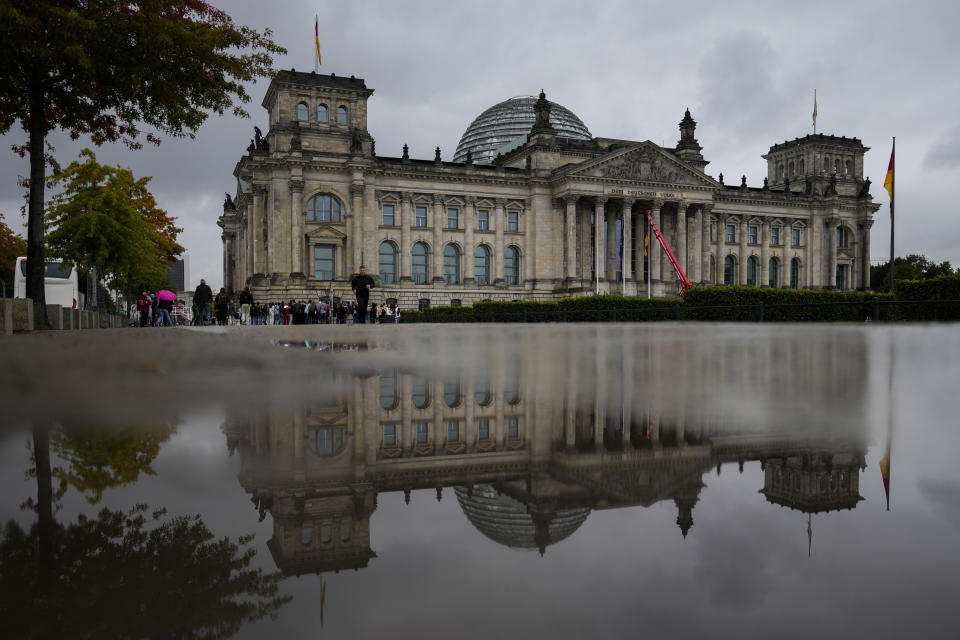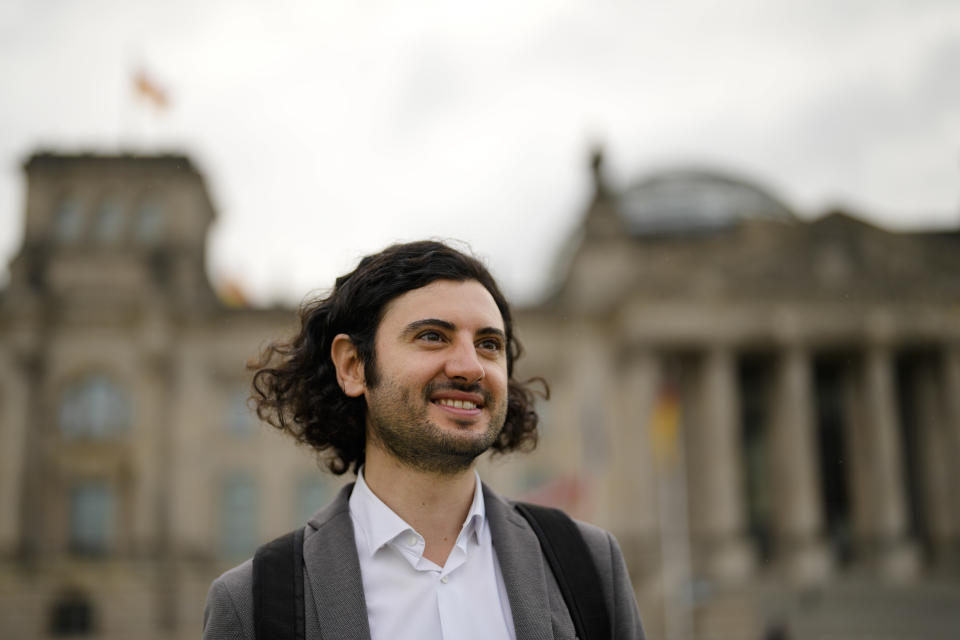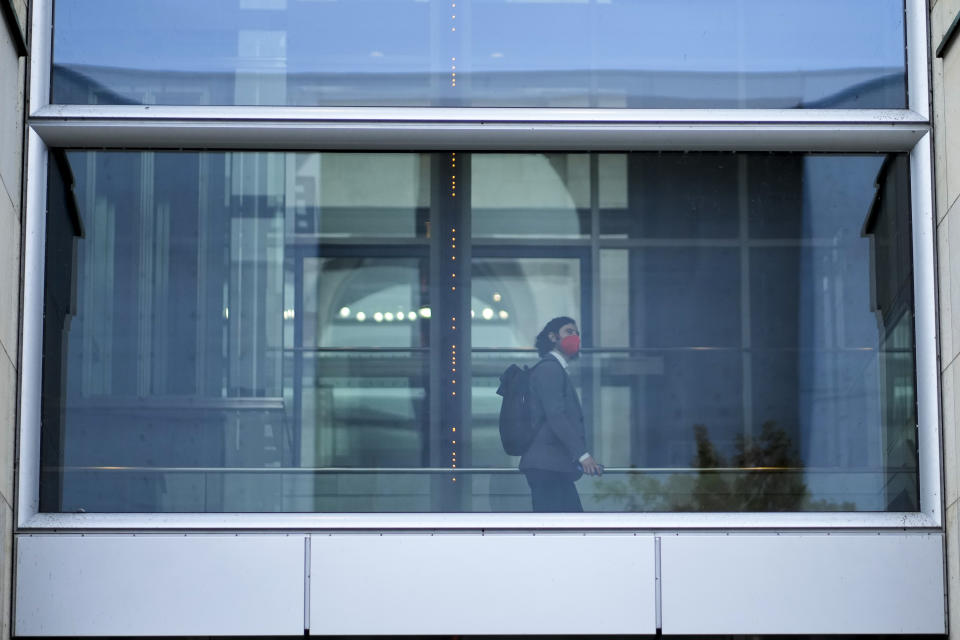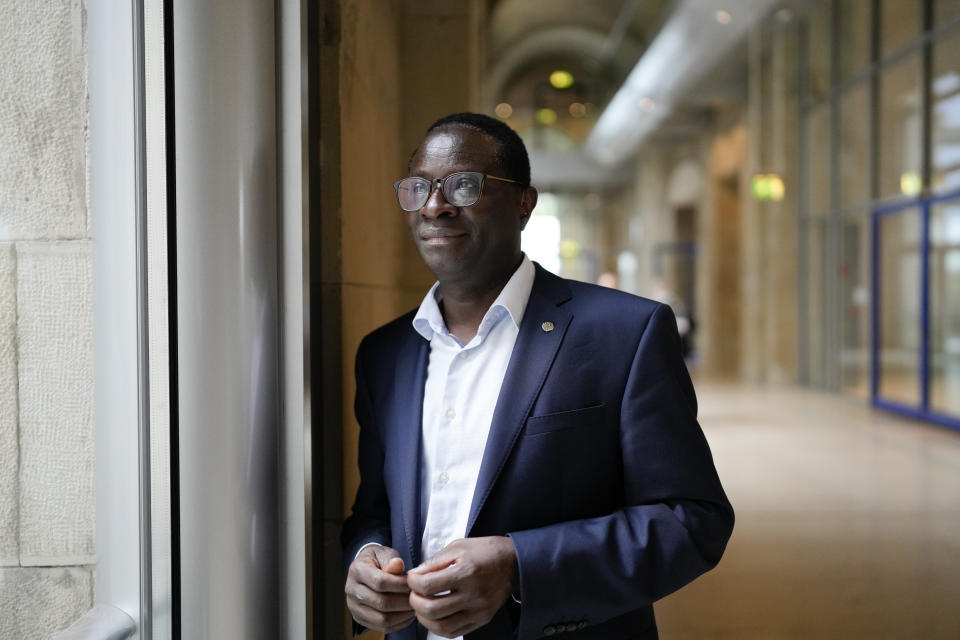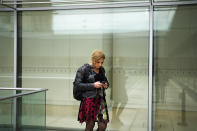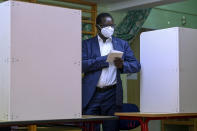New lawmakers make German parliament more diverse than ever
BERLIN (AP) — Hakan Demir smiled broadly as he stood in front of Germany’s majestic parliament building Tuesday, his first official day of work as a national lawmaker.
“My grandfather would have been mighty proud of me, and my parents are proud as well,” Demir, 36, said, taking a moment to remember his family’s roots in Turkey, from where his grandfather came in the early 1970s as an untrained “guest worker” to help build roads and houses in Germany.
Demir, a member of the center-left Social Democratic Party, is one of hundreds of people who ran for Germany's 735-seat lower house of parliament with backgrounds as immigrants or parents or grandparents who immigrated to the country. The number who won has made the Bundestag more diverse and inclusive than ever before.
The chamber now includes at least three people of African descent — up from one in the previous parliament. After years of stagnation, the number of female lawmakers also has gone up again, including two transgender women.
Among the newly elected immigrants is Awet Tesfaiesus, 47, the first Black woman to serve in parliament. Tesfaiesus, who fled from Eritrea with her family as a 4 year old, is a member of the Greens who was elected to represent the Werra-Meissner constituency in central Germany.
Other new Social Democratic lawmakers are Armand Zorn, 33, who was born in Cameroon and came to Germany at age 12, and Reem Alabali-Radovan, 31, the daughter of Iraqi migrants.
New parliament member Serap Guler, 41, of outgoing Chancellor Angela Merkel’s center-right Christian Democratic Union, is the German-born daughter of Turkish immigrants. She has served in recent years as deputy minister for integration in North Rhine-Westphalia state.
West Germany started recruiting “guest workers” from Turkey, Italy, Greece and later Morocco more than 60 years ago, to help the country advance economically. The workers were employed in construction, coal mining, steel production and the auto industry.
Many who initially came as temporary workers decided to stay and bring their families, giving Berlin and other cities in western and southwestern Germany large immigrant communities.
“My grandfather came to Germany because his family was simply so poor. He always told me how as a child he couldn’t even afford to buy shoes,” said Demir, who 50 years later was elected to represent Berlin’s Neukoelln district, one of the country’s most diverse immigrant neighborhoods.
Nowadays, there are about 21.3 million people with immigrant backgrounds in Germany, or about 26% of the population of 83 million.
More than 500 candidates with immigrant roots ran for parliament this year. While it is not yet clear how many were elected, the number is expected to be higher than in all previous parliaments.
The outgoing parliament had 8.2%, or 58 of 709 lawmakers with immigrant roots, while the 2013-17 parliament had only 5.9%, or 37 out of 631 lawmakers, according to Mediendienst Integration, an organization tracking migrant issues in Germany. Election rules mean that the number of lawmakers serving in Bundestag can change; the new one has 735 seats.
The growing diversity in German politics reflects demands from society for a more accurate representation of everyone, University of Trier political scientist Uwe Jun said.
“There is more openness now, and the idea that diverse groups should be found in politics and be directly represented,” Jun told The Associated Press. “This will change politics.”
While the election gave the Bundestag more female lawmakers, women are still a long way from reaching parity in the national legislature. More than a third, or 34.7%, of the new lawmakers are women compared to 31.4% in the outgoing parliament, according to German news agency dpa. In the 2013-17 parliament, 37.3% of lawmakers were women.
The two transgender women elected are both from the Green party: Tessa Ganserer, 44, a forester from Nuremberg in Bavaria, and Nyke Slawik, 27, who grew up in and represents the western city of Leverkusen and whose father emigrated from Poland.
“It all feels so new. I think I’ll only realize later today that I am now truly part of this Bundestag. And I’m so looking forward to it,” Demir said.
___
Frank Jordans contributed reporting.
Follow AP’s coverage of Germany’s election at https://apnews.com/hub/germany-election

 Yahoo Finance
Yahoo Finance 